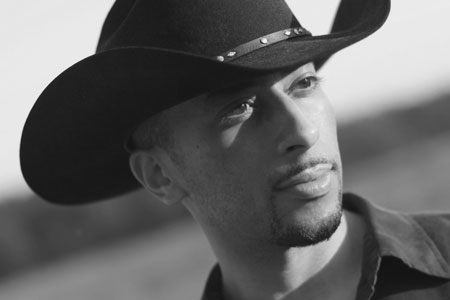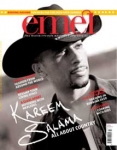
Made in America - Kareem Salama
Issue 58 July 2009
In an American musical landscape, where closet Islam meshed mainly through rap and hip-hop from African-American Muslims, Kareem has found fame in his unique position as the first Muslim Country singer. The genre has always been ripe for cross-cultural fertilisation: even under segregation, musicians of all colours influenced each other (Elvis famously drew heavily from black music); and Country Music has always been woven into the fabric of daily life, its lyrics reflecting a rural working-class experience shared equally by all.
“Country is very close to gospel music, Designer Mens Clothing which had a huge influence on the flavours and the shapes and harmonies,” Kareem explains, with a cowboy twang in his voice. Accordingly, “the last bastion of ethical tunes,” as he terms the genre, tends to contain a deeper meaning than most pop songs. “Of course, I am not trying to be condescending towards other kinds of music,” he hastens to add. “I mean, Country has a lot of pop elements, and my songs do too, but they still retain some oldness in the sound and the form – making it compatible with a little more seriousness and profundity.”
Kareem self-released his first two albums: Generous Peace, a translation of his name, came out in 2006, and This Life of Mine was released a year later. “During the last year and eight months I reassessed where I wanted to go with this career. I have new recorded material, and work that is written and waiting to be recorded – which I want to release into the mainstream, so it can be available to everyone. I have a lot of fans who are not Muslim, and a lot of fans who are Muslim. And of course, they shop at the same place and watch some of the same programmes.”
“Now here’s an interesting thing,” he enthuses. “Most of the music industry is tanking in terms of album sales, but the most lucrative genre, still selling millions of albums, is Country Music. The reason, based on my own research and intuition, is because Country Music actually means something to people. And so, rather than connecting to a single, something that people dance to in a club, people actually connect to the artist. I try to inspire both Muslims and non-Muslims, and people are touched by it. There are a lot of country singers that obviously aren’t Muslim but we all try to do the same thing.”
Kareem now plans distribution through big record labels, like EMI and SONY, so his newest release can be more widely received. The smaller select Muslim audiences he performed for were initially curious, and ultimately appreciative of his songs, attracted by the common theme of religious values found both in Country Music and in their own lives. This connection allowed Kareem to freely mix Islamic ideas into his music, whilst ensuring that it maintained broad appeal; that mixture has worked, as Kareem has drawn a large following of non-Muslim Country Music fans. Going mainstream seems like a logical choice for him — there is nothing specifically in his lyrics that cannot transcend the Islamic Nasheed genre, and his music is in fact very Country Western: “I do think that it’s important to cross boundaries. I think that in the future you’ll see more and more Muslims in the arts are being recognised by the mainstream.”
To read the full story, pick up issue 58 of emel Magazine
Bookmark this |
|
Add to DIGG |
|
Add to del.icio.us |
|
Stumble this |
|
Share on Facebook |
|
Share this |
|
Send to a Friend |
|
Link to this |
|
Printer Friendly |
|
Print in plain text |
|


Comments
0 Comments